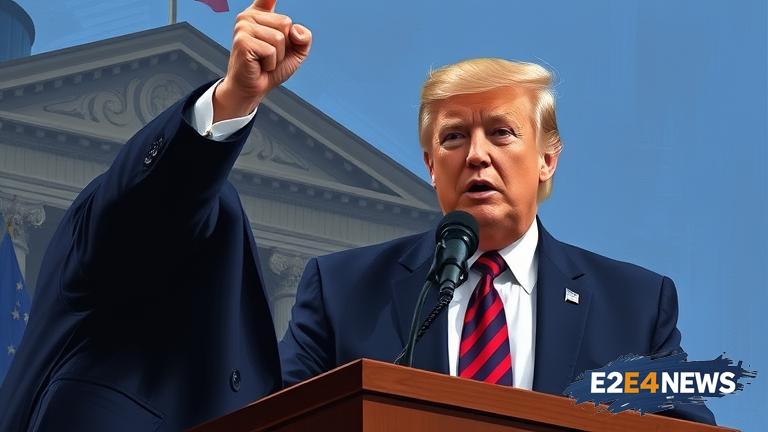The debanking issue has been a growing concern for financial institutions and their customers in recent years. Former US President Donald Trump has recently slammed the practice, citing its potential to harm businesses and individuals. Debanking occurs when a bank terminates its relationship with a customer without providing a clear explanation. This can be devastating for businesses, which rely on banking services to operate. Trump’s comments on the issue have sparked a heated debate about the role of banks in the economy. Some argue that debanking is a necessary measure to prevent money laundering and other illicit activities, while others see it as an overreach of power by financial institutions. The practice has been linked to a range of issues, including the suppression of free speech and the targeting of conservative groups. Trump’s criticism of debanking is seen as a response to the perceived bias of banks against certain individuals and organizations. The former president has long been a vocal critic of the banking industry, and his comments on debanking are likely to resonate with his supporters. However, others have criticized Trump’s stance, arguing that debanking is a necessary tool for preventing financial crimes. The debate over debanking highlights the complex relationships between banks, governments, and customers. As the financial landscape continues to evolve, it is likely that the issue of debanking will remain a contentious one. In recent years, there have been several high-profile cases of debanking, which have sparked widespread outrage. The practice has been criticized by lawmakers and regulators, who argue that it can have a disproportionate impact on certain groups. Despite the controversy surrounding debanking, it remains a common practice in the banking industry. Banks argue that they have a responsibility to protect their customers and prevent financial crimes, and that debanking is a necessary measure to achieve these goals. However, critics argue that the practice is often used as a form of censorship, and that it can have a chilling effect on free speech. The issue of debanking is complex and multifaceted, and it is likely to continue to be a topic of debate in the coming years. As the use of digital payments and online banking continues to grow, the potential for debanking to have a major impact on individuals and businesses is increasing. Trump’s comments on the issue are likely to add fuel to the fire, and to spark further debate about the role of banks in the economy. The former president’s criticism of debanking is seen as a reflection of his broader concerns about the power of financial institutions and the impact of their actions on ordinary Americans. The issue of debanking is also closely tied to the broader debate about financial regulation and the role of government in the economy. As lawmakers and regulators continue to grapple with these issues, it is likely that the practice of debanking will remain a contentious one. In conclusion, the debanking issue is a complex and multifaceted one, and it is likely to continue to be a topic of debate in the coming years. Trump’s comments on the issue have sparked a heated discussion about the role of banks in the economy, and the potential impact of debanking on individuals and businesses.
